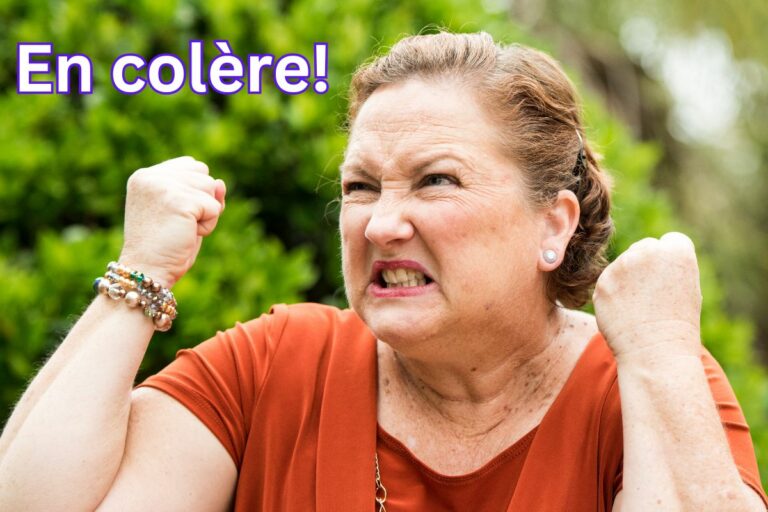Spoken French Comprehension: Train You Ear With These 4 Dialogues
Comprehension is at least half of the challenge of learning spoken French. Understanding what's being said, and saying the right things the right way, are two sides of the same medal.
The comprehension side for learning spoken French plays a fundamental in the speaking side as well, since once you start to hear and understand what's being said, the mimicking kicks in and you begin to reuse in your own speech the colloquial French phrases you've heard.
So developing your spoken French comprehension skills is absolutely essential to becoming a fluent speaker, it's a fundamental prerequisite to producing French speech yourself.
In this post, I'll go over a few common examples of spoken French comprehension challenges learners encounter, with accompanying
This will help train your ear to recognize the colloquial French phrases being spoken, which can go a long way toward developing your memory muscle for speaking.
Spoken French comprehension: getting helped in a store
Listen to this French dialogue:
Bonjour Monsieur, est-ce-que je peux vous renseigner?
Oui bonjour, s'il vous plait, je voudrais essayer ce pull en taille 44. Vous pourriez me le trouver?
Hello sir, can I help you with anything?
Yes hi, I'd like to try this sweater in a size 44
ple ase. Could you get that for me?
The store clerk uses the phrase "est-
Alternative variants commonly used as well include:
Je peux vous renseigner? (can I inform you?)
Je peux vous aider? (may I help you?)
Que puis-je faire pour vous? (what can I do for you?)
The customer responds saying he'd like to try on a sweater in a specific size. He uses the word "pull", short for "pull-over", which in French means "sweater". In spoken French, English words are often deformed and used to mean something different. Understanding what these English words really mean will help your French comprehension.
The customer then asks the clerk if she can get the given size for him. The expression "vous pourriez me le trouver?" (can you find it for me?) is a polite way of saying "go get it for me". Beginner French learners may be a little lost at first when hearing this. French speakers often jump through hoops to find indirect ways to ask for something in order to avoid sounding like they're giving orders. Something to keep in mind for improving your French comprehension skills.
Spoken French comprehension: how to get to a place
On est en retard là! On y va en bus ou en metro?
Vaut mieux prendre le métro, en bus on va se retrouver coincés dans les bouchons...
We're running late already! Are we taking the bus or the subway?
It's better to take the subway, with the bus we'll get stuck in traffic.
An common French expression you need to learn to recognize for listening comprehension is "on est en retard", often pronounced "on est en r'tar".
Also notice the trailing "là" which means "right now", "as we speak". Another e
Je suis vraiment crevée là (I'm really beat right now)
"On y va en (bus, metro, voiture, etc)" is the most common way to express how you're going somewhere, using which means of transportation. This is an important construction to recognize when listening to spoken French.
Tu y vas comment? En car? (how are you getting there? By bus?)
Ils y
vont enavion (they're flying there)Elle y
va à pied (she's walking there, going there "on foot")
The answer "
Vaut mieux être prudent (better be careful)
Vaut mieux ne pas y aller (better not go there)
Vaut mieux se coucher tôt (better go to bed early)
The argument for not taking the bus is to avoid getting stuck in traffic, "
Elle va se
retrouver coincée (she's going to get stuck)
The colloquial term "
Nous sommes en retard à cause des bouchons (we're late because of traffic)
Spoken French comprehension: having guest s over for dinner
Mais, tu n'as pas encore préparé la salade? Les invités arrivent sous peu!
Je fais ce que je peux! Tu n'as qu'à m'aider un peu au lieu de perdre du temps!
But, you haven't prepared the salad yet? Our guests will be here soon!
I'm doing the best I can! Why don't you just help me instead of wasting time!
When listening to this short dialogue, notice how "tu n'as pas encore" sounds like "t'as pas encore". This kind of spoken contraction is one of the things that makes spoken French comprehension challenging in everyday life.
The phrase "
Les pompiers arrivent sous peu (the firemen will be here soon)
The expression "je fais ce que je peux" (I do as I can) is another common colloquial French expression. Some equivalent variants:
Je fais comme je peux
Je fais mon possible
Je fais mon maximum
For French comprehension, it's key that you learn to hear and understand the expression "
Tu
n'as qu'àm'aider (why don't you just help me)Tu
n'as qu'à ranger çadans la cave (just put this away in the basement)
The last part of the sentence "
Va droit au but au lieu de tourner autour du pot! (go straight to the point instead of beating around the bush)
Fais quelque chose au lieu de me regarder! (stop looking at me and do something)
Spoken French comprehension: meeting a person at a place
Allo c'est moi! Mais enfin tu es où? On avait rendez-vous à midi non?
Allo? je t'entends très mal, je n'ai pas beaucoup de réseau là...
Hi it's me! Where the heck are you? We're supposed to meet at noon aren't we?Hello? I can't hear you well at all, network coverage is not good where I stand.
The dialogue starts with "allo c'est moi!" which is used a lot nowadays in mobile phone conversations in French, since the person receiving the call supposedly knows who the caller is before picking up.
The next bit, "
Mais
enfin ,tu te décidesou ! (make up your mind for god's sake!)non Mais
enfin , il est oùce restaurant! (where in the world/where the heck is this restaurant!)
The person asks "
Ils sont où là? (where are they right now?)
The second person can't hear what the first is saying:
Je t'entends très mal! (I can't hear you well)
This is an important phrase to recognize in spoken French for good
J'entends rien! (I can't hear anything)
Je ne t'entends pas! (I can't hear you)
je capte très mal (I'm not receiving well)
Ça coupe! (your breaking up)
In this dialogue, the person can't hear well due to bad phone network:
Je n'ai pas beaucoup de réseau là! (I have bad coverage right now)
Again, this French phrase is important for you to comprehend and should trigger some kind of action on your part or the other person's, such as repeating what you last said, moving around to a zone with better coverage, or hanging up and calling back the person







